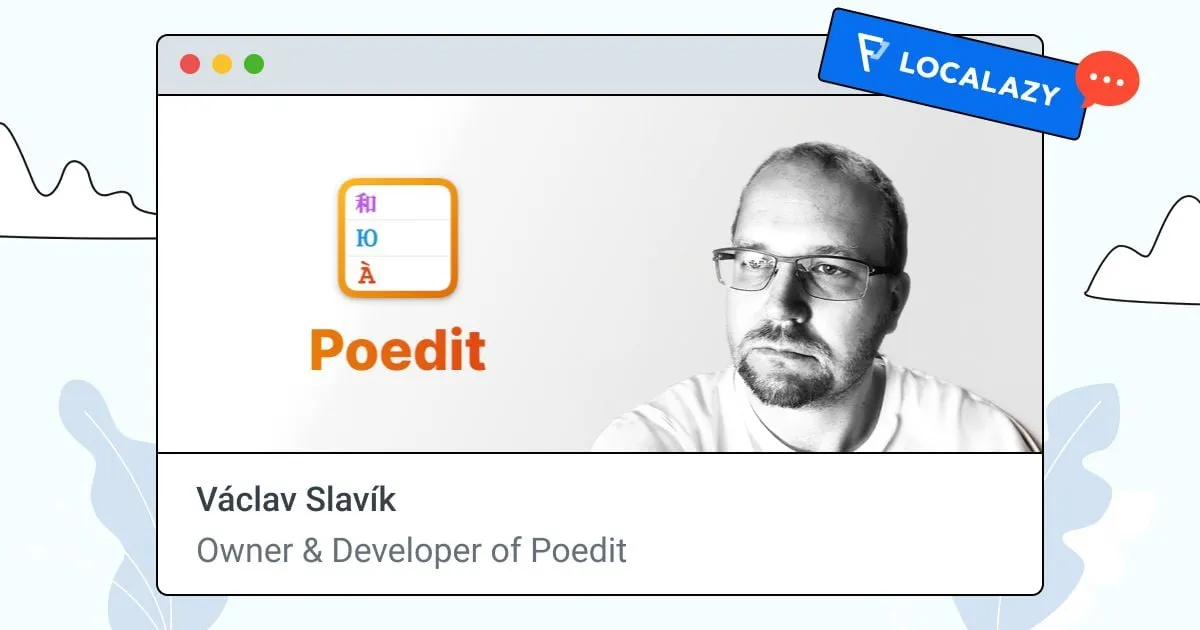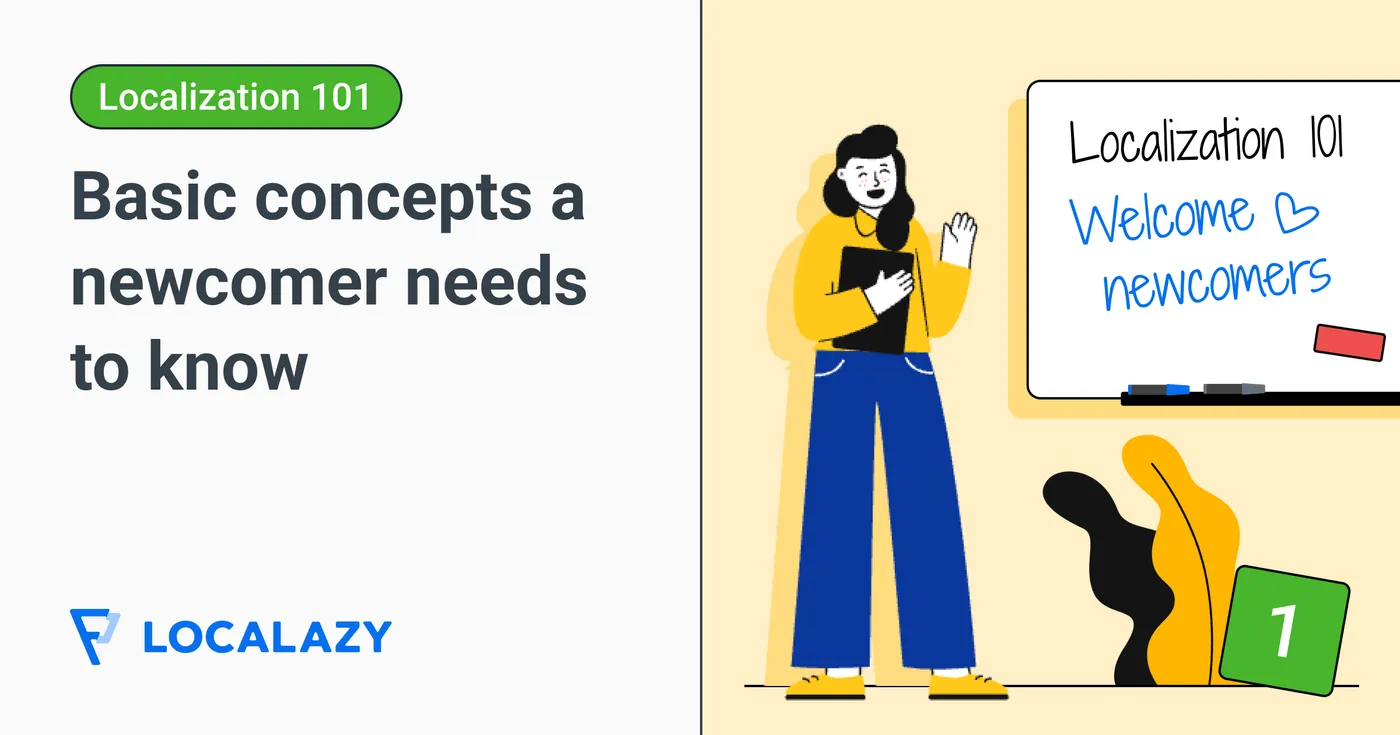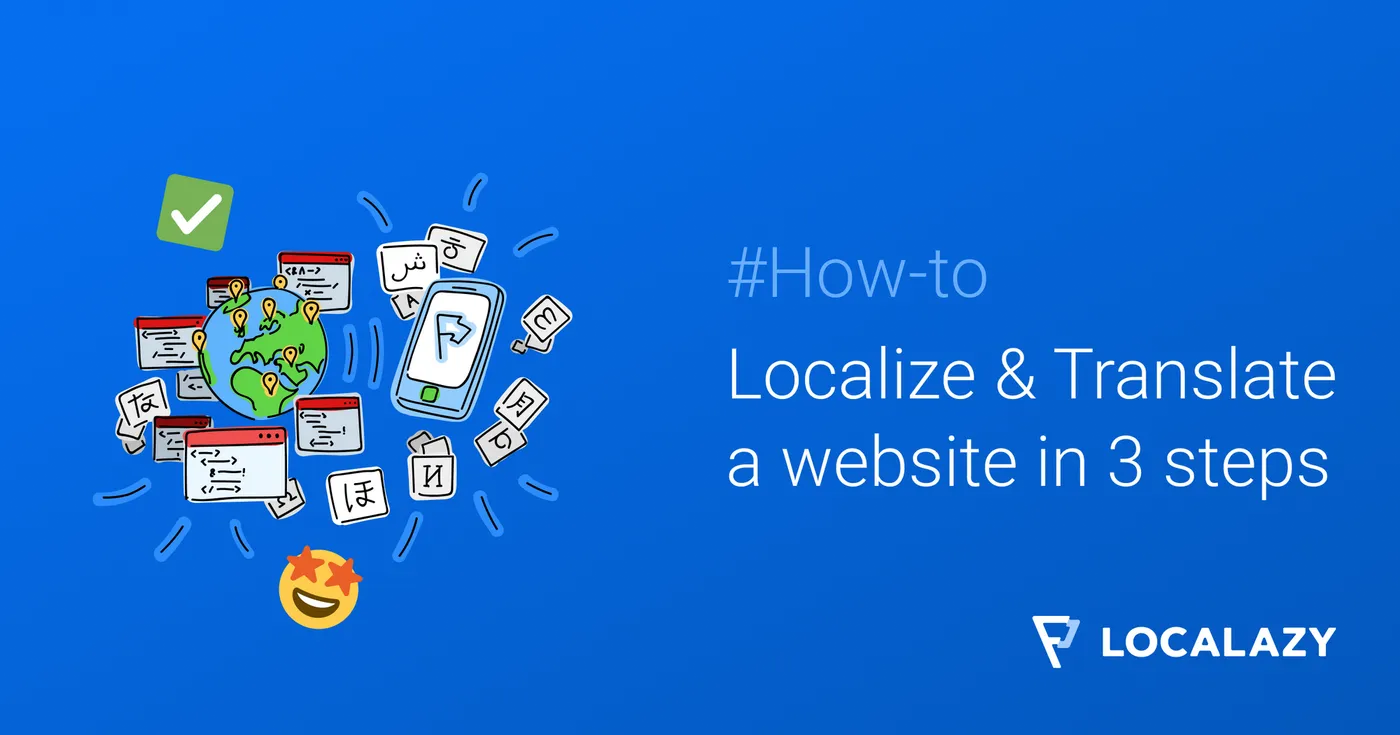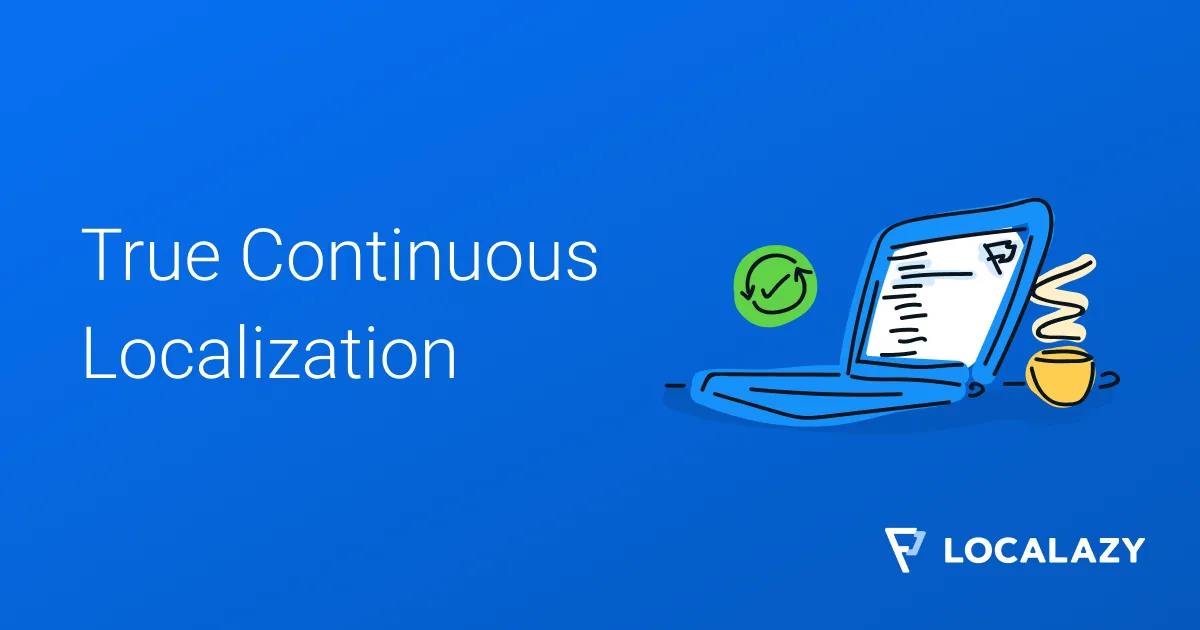Back in 2001, when localization was neither vast nor well-known across industries, a young Open Source fanatic thought that software solutions able to break down language barriers were much needed for non-experts. That developer was Václav Slavík, and the product he came up with, Poedit, was going to help thousands of users all over the world translate their software, sites, and apps in the following years - for free or in exchange for a modest fee, and with no previous l10n expertise needed.
What started out as a student project is now a successful cross-platform desktop translation editor used by 50k active users every month, 15% of which pay for Pro features to convert their WordPress, PO, XLIFF, JSON, and Flutter files to other languages. 📩 Here at Localazy, we always strive to make your localization & i18n processes easier, and that's why we've partnered with Poedit for our newest integration, which is now available for everyone to enjoy. Find out how it will work in the following interview with Slavík, where we also discuss integration processes, bootstrapping, and innovation in the localization business.
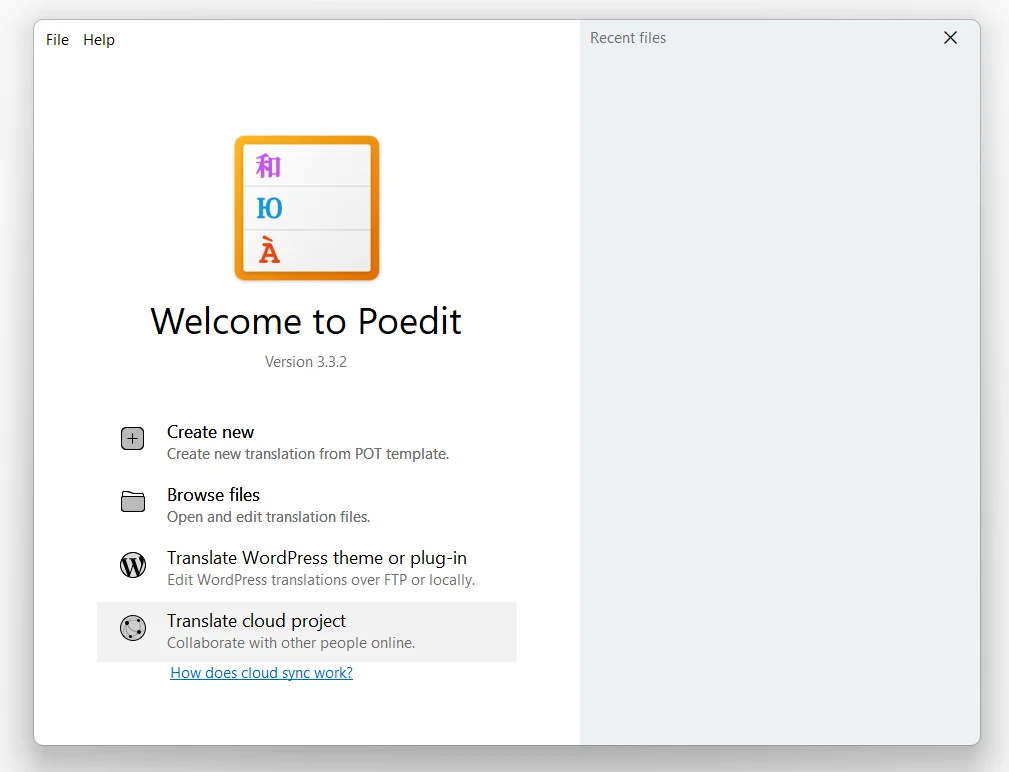
🪶 Making localization easier for everyone 🔗
Hi, Václav! ☺️ Happy to have you here. In a few words, what's Poedit's mission?
Poedit is a translation editor focused on localization. Its mission is to make localization easy, even for non-technical people.
How did it all come to be?
It actually started as a student project in one of my CS classes! That was 23 years ago. I then released it as Open Source and kept working on it on and off, and it sort of became semi-famous in Linux and WordPress communities. At some point, I realized a lot of WordPress users struggle with the technical aspects of localization, and I created a paid version with features made to make their lives easier. ✌️ That was the turning point: I was able to quit consulting and work on Poedit full-time since then.
How did you get in contact with the localization & software businesses?
I have been heavily involved with Open Source since my 20s. Localization was always close to my heart, not being a native English speaker. Creating a graphical editor that “normal people” could use to create GNU gettext translations followed from that. Poedit was their option when localization was not nearly as widespread as these days, as well as one of the first user-friendly tools for doing so.
"Not being a native English speaker, localization was always close to my heart. Creating a graphical editor that 'normal people' could use to create GNU gettext translations followed from that"
What kind of localization problems did you encounter back then as a user and a developer?
Primarily a lack of awareness of the need for localization or interest in supporting it. For developers, it wasn’t as common to have good localization support in, e.g., libraries and frameworks (I was involved with the wxWidgets library, which Poedit uses and which had very good localization support). It’s surprisingly common to have localization solutions that don’t handle plurals well (Arabic has six forms!), even today!
Who are your customers?
Mainly translators doing both Open Source and commercial localization. ✍️ A lot of customers work on WordPress sites, too.
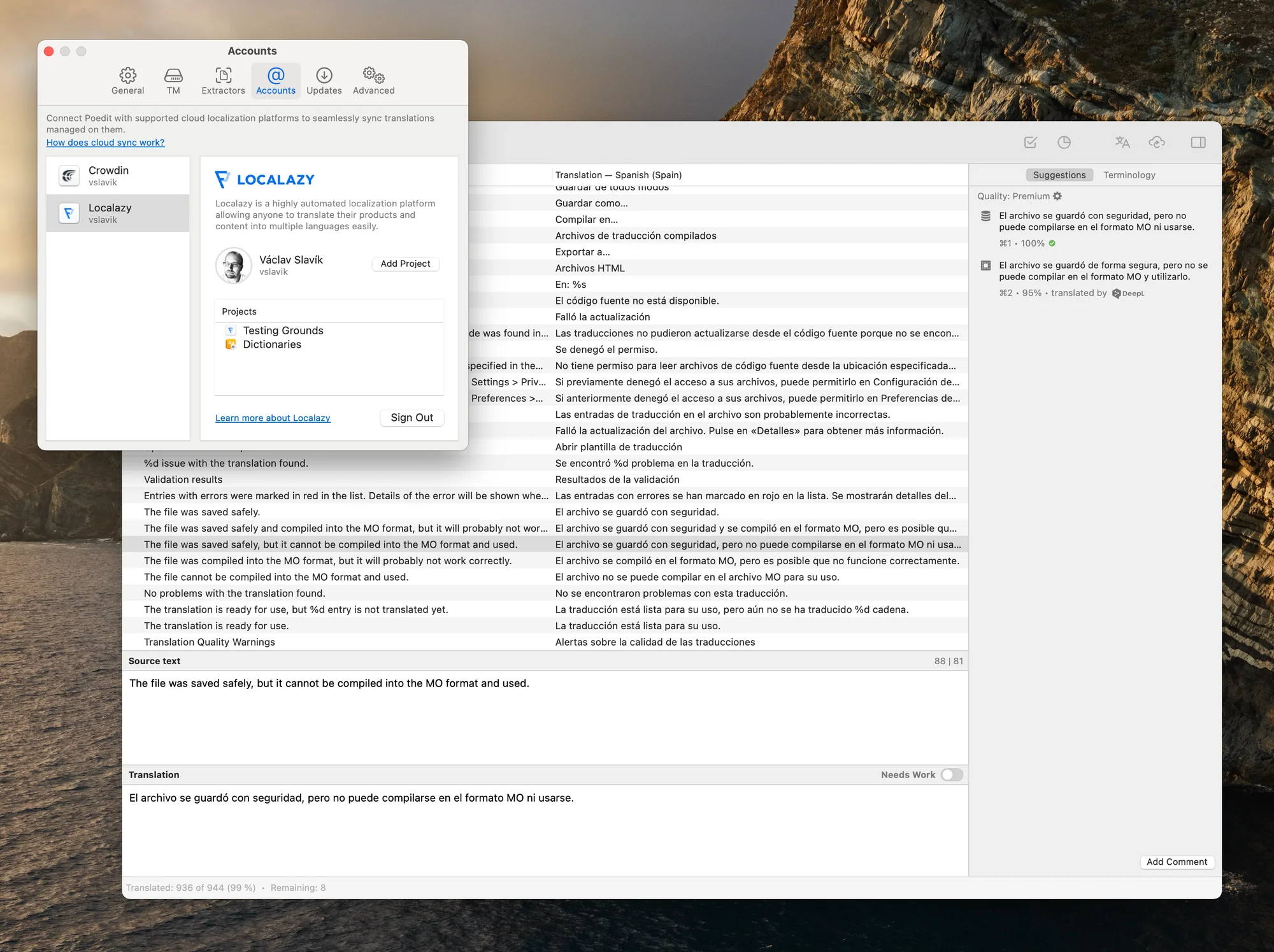
💻 Simplicity & Usability 🔗
Let's talk about Poedit's vision. What is it?
I strive for simplicity and limit the scope to localization. Poedit isn’t, and never will be, a “hard-core” tool like Trados. I want it to be usable and useful for professionals but also remain accessible to hobbyists and casual users.
What about funding?
We're entirely bootstrapped. We never took any outside investment.
Why do you think localization is important?
Isn’t it obvious? 🤔 Not everybody speaks English. It’s 2023, and people expect apps and tools — especially if they pay for them! — to speak their language.
Read our article on Localazy Blog called Mythbusters: Our users speak English, so we don’t have to localize
What does success look like for Poedit?
Being bootstrapped, we have the freedom to be humble: making customers happy and having enough of them to fund work on Poedit is a success. 🏆
What are the biggest risks for your business?
People giving up on good Mac or Windows apps and just doing everything on the web. Additionally, developers resigning on quality and accepting fully automated AI translations as “good enough.”
"In 2023, people expect apps and tools to speak their language, especially if they pay for them"
In which fields is Poedit innovating?
Poedit was a huge innovator: we originated a big chunk of the localization business as it is today. 😊 With our Pro version, we pioneered simple WordPress localization, and Poedit’s extraction of translatable texts enabled a lot of developers to start translating their apps, themes, and plugins.
Any future features you’re working on that you can reveal to us? 👀
We have big plans around translation management. We also aim to make localization easier for translators and agencies that work with tools like Trados or Excel, and we plan to support many more formats soon. Poedit started as an editor for PO files, but we added XLIFF support and, this year, JSON, and there’s much more coming so that Poedit can be your go-to tool for any localization project.
Generally speaking, what are the next steps for PoEdit?
Supporting more file formats, more workflows, and adding tools for managing translations. 👌
If you could start again with PoEdit, what would you do differently from today's perspective?
I’d have started offering Poedit Pro —and working on it full-time— sooner.
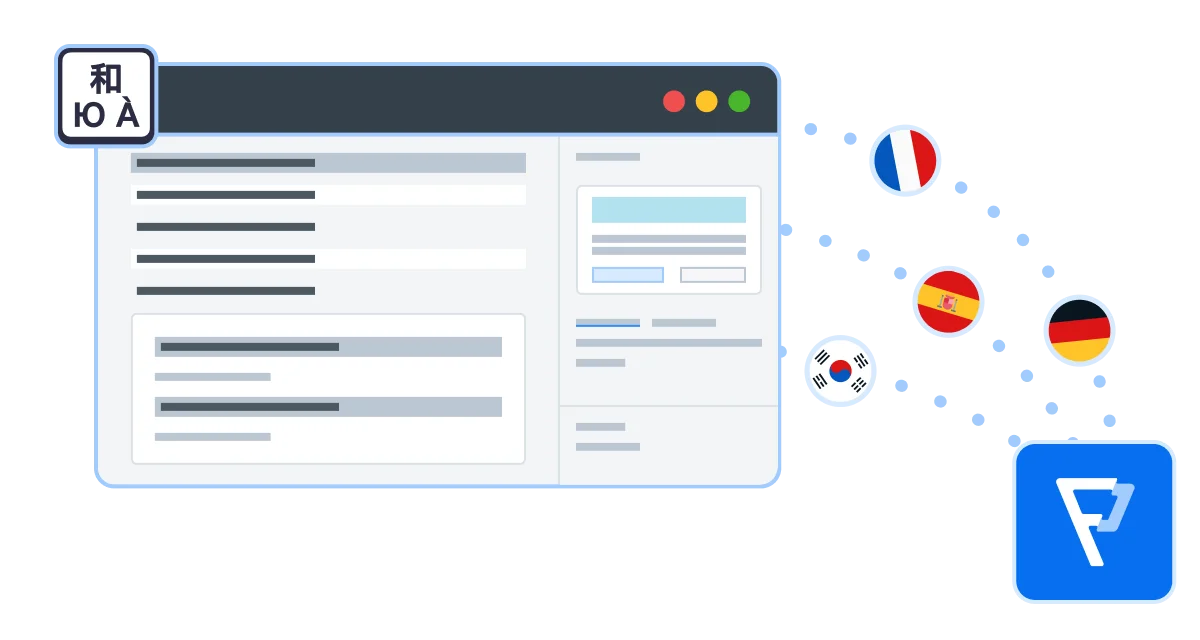
🧩 Integrating with Localazy 🔗
How did you find us? And how did your partnership with Localazy come to be?
It was actually Localazy’s founder, Václav, who reached out about integrating Localazy with Poedit, similar to how Poedit already supported Crowdin.
Was the integration process easy?
There were some skeletons in the closet on Poedit’s end 🔎 that needed attention on our side first. That complicated things a bit, but interfacing with Localazy's API was really easy and a joy to work on.
👩💻 Get all the details on the Localazy & Poedit integration in the docs.
How long did it take, and is there anything you guys are still finessing?
It’s pretty much done now. 🥳 As for how long it took, that depends. I would say a few months, including the Poedit-side refactoring, but that wasn’t full-time work. A week of dedicated Localazy-specific work is a fair guess, I think.
Can you explain how both tools are going to work together from now on?
You’ll be able to open Localazy translation projects directly from Poedit on your Mac or PC and translate them without opening the web browser. And the other way around, too: you’ll be able to open a project from within Localazy in Poedit. This is great for translators who prefer to work in native apps and a must-have for those who need to work offline, e.g., when commuting or traveling. That’s a thing that SaaS platforms don’t do well, and Poedit fills the gap.
What is your favorite Localazy feature?
Automating humans! That is the ability to integrate with CI and have professional translators, curated by Localazy, pick up translation jobs. 👨💻

🦾 SaaS, MT & future challenges 🔗
Would you like to highlight some services or products you really like to use on your own?
Sure! Three come to mind:
How has the localization market evolved, and what do you think is its biggest challenge right now?
It grew enormously, particularly on the SaaS side. 🔥 20 years ago, only the giants localized their software. These days, even small indie developers are expected to localize. With the rise of platforms like GitHub and CI/CD workflows, developers expect to integrate localization continuously and to integrate AI tools as well.
As AI and machine translation are getting better, a challenge would be convincing developers that machine translation is not enough and that there’s value in the high-quality localization that Localazy & Poedit can help with. I can see that already, just talking to (some) customers, to some extent.
"20 years ago, only the giants localized their software. These days, even small indie developers are expected to localize. And developers expect to continuously integrate localization and AI tools too"
What do you think – how will our industry look like in about 10 years from now?
I’m a humble developer, and foretelling isn’t really my thing. 🙂
Can you expand on AI and its localization capabilities, though? How do you think products like Poedit & Localazy are still going to be relevant in the future?
AI has already transformed how translators work. It happened under the radar years ago with the rise of high-quality machine translation. People are in awe of ChatGPT’s emergent ability to translate, but it’s not nearly as accurate and faithful to the original as dedicated AI tools such as DeepL.
DeepL made waves a few years back with how much better it was than Google Translate, and Poedit quickly integrated it. Dedicated MT/AI tools haven’t replaced translators yet, and I don’t see it happening in the future. Localization, in particular, is hard even for human translators, with its inherent brevity and a lot of context.
"Dedicated MT/AI tools didn’t replace translators yet, and I don’t see it happening in the future. They definitely made translators more productive, though, and they're becoming good enough for casual use cases"
These tools definitely made translators more productive, though, and will do even more of that in the future, and they’re quickly becoming good enough for casual use cases when comprehension matters more than quality.
Thank you, Václav! We wish you many successful years with Poedit and hope that our new partnership will help both of our communities.
⌨️ Try the new Poedit with Localazy 🔗
If you need to work offline or prefer native apps on your desktop over cloud platforms, give Poedit a try and start using it to translate your Localazy project in a simple and intuitive interface on the go now!
➡️ Download the latest version of Poedit 3.4
